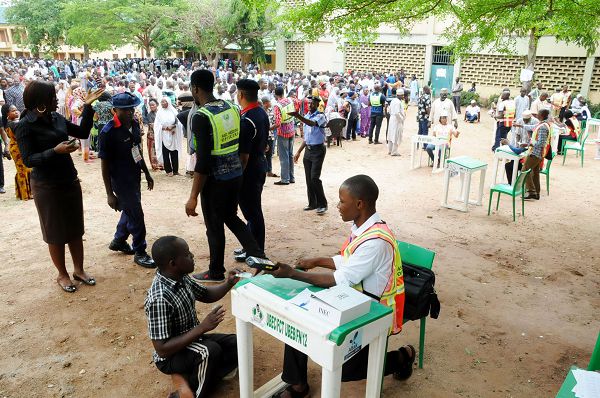
Nigerian voters in big battle for Buhari or Atiku today
Voters in Nigeria, Africa’s largest democracy, will go to the polls with 84 million registered voters expected to cast their ballot to elect a new President.
The elections, which were originally slated for last Saturday, February 16, 2019, were rescheduled just five hours before polls were due to open by the country’s Independent National Electoral Commission (INEC), because of what it described as logistical challenges.
The postponement of the elections disrupted the plans of many Nigerians who had organised their schedules to be able to travel to their electoral areas to cast their votes.
The delay came at a huge economic cost, with one research company putting it at about $2.2billion.
INEC preparedness
Despite last Saturday’s setback, INEC has given an assurance that everything is in place for today’s election.
Information available on its website and social media platforms says most of the electoral materials have arrived at their respective destinations or are in transit to the 36 states across the country.
As of yesterday, information from INEC showed that 72, 775,502 out of the 84,004,084 registered voters had collected their Permanent Voter Card (PVC) which would guarantee one’s right to vote.
Then there are the machines used to verify voters -- 180,000 smart card readers have been deployed to polling stations across the country.
All these machines were initially programmed to work on the originally planned voting day only, so they all needed to be reprogrammed.
INEC says this process has been completed and the machines are ready for use.
It also said it had made up for 4,600 smart card readers destroyed in a fire in Anambra State, by redistributing devices from other states.
Challenge for the winner
Although 73 candidates are contesting the top office in Africa’s most populous country, it is a straight fight between incumbent President Muhammadu Buhari of the All Progressive Party (APC) and former Vice-President Atiku Abubakar of the People’s Democratic Party (PDP).
President Buhari will be seeking a second term while Mr Abubakar will be trying his luck for the third time.
To win the election outright, a candidate must get an overall majority and at least a quarter of the votes in two-thirds of the country’s 36 states, otherwise, it will go into a run-off, which must be held within seven days.
Whoever emerges victorious will be confronted by daunting challenges such as unemployment, chronic poverty, corruption, sluggish economy dependent on fluctuating oil revenues and a dire security situation headlined by insurgency by Boko Haram in the north-east of the country, and sectarian conflict in Plateau State.
The winner would also have to be able to deal with the poor power sector that had affected Nigerian’s economy for many years, and had made Nigerians overly reliant on generators for electricity.
